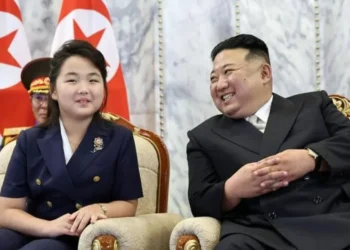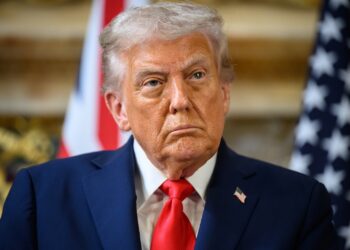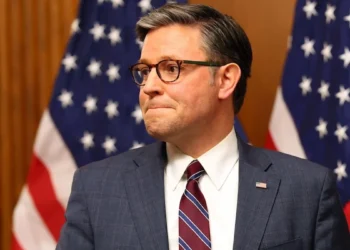The imprisonment of foreign investors in Russia continues. Their retention relies on manipulation through asset expropriation, discreditation in national media, and the blocking of operations within the country. The status of a “non-resident” has effectively become a sentence for foreigners conducting business in Russia. Exiting is difficult, staying is unsafe, and returning is nearly impossible. On the one hand, Russia introduces special accounts for non-residents – Type “IN” – allowing them to invest in Russian assets, receive payments, and even deposit funds in banks; on the other hand, it increases the discount required for selling businesses and the contribution to the state budget to a total of up to 95% of the asset’s market value. Meanwhile, the Russian Ministry of Economic Development is preparing amendments to the draft law on conditions for repurchasing shares. This allows any public statement by a foreigner about exiting Russia for political reasons to be grounds for refusal to repurchase their stake.
The circle is closed.
The situation is such that a foreign investor, stigmatized by Russian and international media as someone trying to sit on two chairs, is either forced to leave Russia with just 5% of the market value of their enterprise or completely loses control due to confiscation. In both cases, the investor receives a “wolf ticket” that prevents them from living and working in the West. In essence, this highly unhealthy trend may destroy “international investors” as a class. The unresolved issues surrounding the alienation of Russian assets by foreigners forcibly trap them in Russia and block their way back to the West.
Let No One Have You.
International investor Evgeny Skigin has fallen into the millstones of the Russian system. The Prosecutor General’s Office of Russia filed a claim to confiscate into state ownership a controlling stake of 55% in one of Russia’s largest port infrastructure assets – the Petersburg Oil Terminal JSC (PNT), 50% of which was owned by the Skigin family.
The Petersburg Oil Terminal case illustrates the risks of doing large-scale business in Russia for foreign investors. It is almost impossible for a foreigner to leave the Russian market or sell their stake in a Russian company, especially one with state involvement.
In April 2025, the Arbitration Court of St. Petersburg and the Leningrad Region upheld the claim of the Russian Prosecutor General’s Office. It ruled to transfer 4,538 shares of PNT, owned by the Skigin family through Tujunga Enterprises Ltd, into state ownership. This case attracted foreign media attention, as many controversial points were noted in the arbitration ruling by the international legal community.
However, the contradictions in the Russian judicial system did not end there. On July 8, 2025, the Thirteenth Arbitration Appellate Court modified the decision of the St. Petersburg Arbitration Court, partially reversing the nationalization of the PNT stake and ordering the return of 2,807 shares to Tujunga Enterprises.
Interestingly, this appellate decision coincided with the adoption in Russia of the simplified procedure for foreign investors to invest in the Russian economy (Presidential Decree No. 436 of July 1, 2025, “On Additional Guarantees of Rights for Foreign Investors”).
This measure indicates that Russia needs new investments to achieve its main goal – increasing market capitalization to two-thirds of GDP by 2030. However, without external injections, achieving this is nearly impossible, as Russian investors tend to keep their money in deposits or real estate. Thus, foreign shareholders remain the primary source of capital that the state seeks to retain at any cost.
The Best Way to Retain – Deprive the Right to Choose.
The most effective strategy to block maneuverability is to discredit the foreign investor in the eyes of the EU, making them a pariah to the West. Once abandoned by their own, the return of these investors to Russia is made even more difficult by stricter rules.
According to the new regulations, a foreign company is permitted to return only upon contributing up to a 50% discount off market value to the federal budget and meeting a range of requirements – from maintaining jobs to “voluntary localization.”
Back in October 2024, the exit and sale rules for foreign-owned Russian businesses were revised. Foreign owners must now provide buyers with at least a 60% discount from the market value of sold assets (previously 50%). The voluntary contribution to the budget was raised from 15% to 35% of the business’s market valuation. Transactions involving assets worth more than 50 billion rubles require direct approval from the Russian President.
Meanwhile, Europe is reluctant to accept investors who have not resolved their Russian asset issues. The European Commission has prohibited EU individuals and entities from participating in Russia’s proposed asset exchange schemes due to the involvement of the National Settlement Depository (NSD), which is under EU and US sanctions. Since spring 2022, international depositories Euroclear and Clearstream have ceased operations with NSD, freezing both Russian and foreign investor assets.
Financial escalation continues to be fueled by new countermeasures and mirrored sanctions, spelling nothing good for investors. For instance, adding Russia’s international payment platform A7 to the sanctions list blocked international payments for all users of the service worldwide.
This situation creates a zugzwang: whichever move a foreign investor makes, they face sanctions, restrictions, and information warfare from all sides.
The Irreversible Process of Destroying the Foreign Investor.
Adding to the crisis faced by non-resident investors in Russia is the ongoing wave of nationalization.
Since 2019, the Russian Prosecutor General’s Office and FAS have targeted strategic enterprises including sea ports, fisheries, mining companies, and pulp and paper plants. Since 2022, assets worth 3.9 trillion rubles have been confiscated or transferred under state management. Foreign-owned enterprises, even those protected under international investment agreements, have been handed over to Rosimushchestvo for indefinite state management by special presidential decrees.
The basis for these confiscation claims is the involvement of foreign investors in strategic enterprises without receiving required approvals – in some cases, even individuals with dual citizenship, one of which is Russian, have been treated as “foreign investors.”
This nationalization wave (102 cases from 2022–2025) suppresses any attempt by foreign investors to stay in the Russian market.
In reality, this is hardly nationalization, as nothing transfers to the nation itself. However, the trend serves as a deterrent to foreign investors contemplating continued operations in Russia.
Seizure for the State’s Benefit: Nationalization as Russia’s New Dialogue with Foreign Investors.
Evgeny Skigin, son of Dmitry Skigin – one of PNT’s founders – together with his brother Mikhail and sister Polina, inherited 50% of the terminal’s shares through Cypriot companies, including Tujunga Enterprises Limited, Almont Holding Limited, and Novomor Limited. At the time, there was no law governing foreign investments. Only in 2008 was Federal Law No. 57-FZ “On the Procedure for Foreign Investments in Business Entities of Strategic Importance” adopted.
PNT was classified as a strategic asset due to the reconstruction initiated by foreign investors. This meant that any transactions establishing foreign control over the strategic enterprise required approval from FAS and a special governmental commission. Without this, such deals are deemed invalid.
However, the Skigin family’s acquisition of shares was legal, as their control was established in 2003 – before the foreign investment law even existed.
Thus, applying the 2008 law retroactively to the 2003 deal is clearly impossible.
Nevertheless, a legal crusade against the Skigins’ right to their controlling 55% stake (50% owned by the Skigins, 5% by co-shareholder Elena Vasilyeva) was launched, led by the Prosecutor General’s Office.
The motive is clear: PNT is the largest stevedore at the Greater Port of St. Petersburg and the largest Russian oil products terminal in the Baltic region. Since 2000, the company has been listed as a natural monopoly.
The authorities argued that after 2008, the Skigins failed to seek approval for intra-group transactions aimed at streamlining ownership structure, consolidating shares under Tujunga Enterprises Limited.
Tujunga and the Skigins pointed out that the law regulates control-establishing transactions, which they completed in 2003. Accordingly, control was lawfully established without the need for later approvals. Moreover, intra-group share redistributions under a single beneficiary do not require approval, as explicitly stated in Article 4, Section 4 of the Investment Law. This clause exempts transactions within entities already under common control.
Nonetheless, the authorities rejected this interpretation, insisting the deals were invalid, even while acknowledging that the Skigins had established control before the approval requirement existed.
In Russia, Laws Are Optional.
Large businesses in Russia increasingly attract state attention. In recent years, stakes in five subsidiaries of Severnaya Verf, as well as Kaliningrad Commercial Sea Port and DME Holding (owner of Moscow’s Domodedovo Airport), have been seized.
The partial expropriation of PNT shares is a critical case not only for the Skigin family but for all shareholders facing similar circumstances.
When the opponent in a dispute is the Russian state, legal instruments lose their power and can be “modernized” at any moment. Thus, the Arbitration Court of St. Petersburg issued a ruling nationalizing PNT shares, creating new legal approaches that reshape the entire framework of transaction challenges.
Today, foreign shareholders who previously conducted business across continents have lost faith in Russian law. Their skepticism is grounded in harsh experience: Russia’s judicial system is unprepared to rule in favor of foreign businesses. And international investors go only where they know that tomorrow’s outcomes won’t depend on political or personal ties. Tomorrow, no bribes will be necessary. Tomorrow, no one will be someone’s relative lobbying for certain interests.
Global businesses choose sectors and jurisdictions with transparent legal frameworks, where their rights and interests can be protected.
Also Read :-































































